An International Colloquium
11–12 October 2018, Prešeren Hall, SAZU (Novi trg 4, Ljubljana)
Organizers: ZRC SAZU Institute of Slovenian Literature and Literary Studies, Slovenian Comparative Literature Association
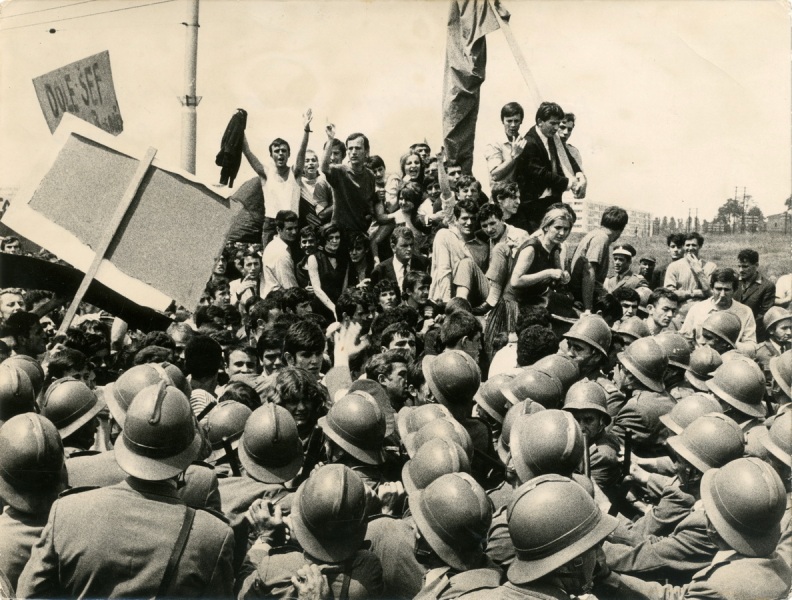
Introduction
May ’68 at 50 is certainly not the first conference with this title this year. But it might be the only one that has Yugoslavia at 75 in the title as well. This begs the question, Why use, not one, but two anniversaries in the title of a conference? One is bad enough for an event that has theoretical ambitions, but two? After all, an anniversary is a bizarre and certainly pre-theoretical mix of the evental and the conjunctural; it is what Fernand Braudel would call an event, but an event removed from us by what he might call a conjuncture. In this respect, May ’68 at 50 is neither an event nor a conjuncture; it is an event that happened a whole conjuncture ago. And Yugoslavia at 75 is of course no better.
However, adding Yugoslavia at 75 to May ’68 at 50 doesn’t necessarily make thing twice as bad. If we look back at what started in Paris in 1968 from the perspective of what happened in Jajce in 1943, namely the establishment of socialist Yugoslavia, this at least gives us a chance to move from both the evental and the conjunctural and grasp the structural, the real interest of Fernand Braudel.
Indeed, the title May ’68 at 50, Yugoslavia at 75 poses questions that ultimately are structural, insofar as their ultimate horizon is the longue durée that goes all the way back to the early modern origins of capitalism, the object of Braudel’s first book. Outside theory, Yugoslav socialist experiment and its defence during Yugoslav May ’68 belie the commonplace that May ’68 fought for socialism in the West and against socialism in the East. And within theory, Yugoslav non-alignment and self-management pose a problem for the popular Braudelian account of 1968 as mostly a revolt against both the US and the USSR. Both these commonplaces about May ’68 are complicated by May in Yugoslavia, where the regime was criticized in the name of its own ideals of self-management and non-alignment. Contra opinion-makers, Yugoslav protesters did not protest against socialism as such, despite protesting in the so-called East; pace Braudelians, they protested against more than just the forced choice between US and the USSR (not least because they did not protest against socialism).
Beyond these commonplaces, May ’68 at 50, Yugoslavia at 75 will rethink our assumptions about May ’68 across such divides as the West and the rest, politics and culture, culture and counterculture, and art and critique. As such, the conference will create an opportunity to pose such fundamental questions as, Why was May ’68 necessary at all in the country that led the Non-Aligned Movement and experimented with self-management as an alternative to both capitalism and state socialism? Estranged in this way, the fact that May ’68 did take place even in Yugoslavia can begin to have consequences for what we think about May ’68 globally. If this is so, it does indeed make sense to put May ’68 at 50 and Yugoslavia at 75 together. (Jernej Habjan)
Program and abstracts: conference brochure PDF
Suman GUPTA: The University as Contested Site and the Poverty of Student Life [Univerza kot prostor boja in beda študentskega življenja]
Vladimir GVOZDEN: Protests of 1968: The Politics of Memory or the Memory of Politics? [Protesti leta 1968: politika spomina ali spomin na politiko?]
Ivana PERICA: Aesthetic ‘Traditions and Perspectives’ and the Politics of Yugoslav 1968 [Estetske »tradicije in perspektive« ter politika jugoslovanskega leta 1968]
Rastko MOČNIK: Mao after 1968 [Mao po letu 1968]
Marko JUVAN: Co-presence or Interaction? Theory, Literature and Politics of the Long ’68 and the Issue of Centre/Periphery[Sobivanje ali interakcija? Teorija, literatura in politika »dolgega leta 68« ter problem centra in periferije]
Andraž JEŽ: Traces of Cold-War Propaganda in Recent Interpretations of 1968 [Sledovi hladnovojne propagande v današnjih interpretacijah leta 1968]
Rok BENČIN: Distant Immediacies: Badiou and Rancière on the Consequences of May ’68 [Odmaknjene neposrednosti: Badiou in Rancière o posledicah maja ’68]
Antonia BIRNBAUM: Decentring or Recentring Proletarian Politics? A Paradox of French Maoism [Razsrediščiti ali ponovno osrediščiti proletarsko politiko? Paradoks francoskega maoizma]
Photos from the conference
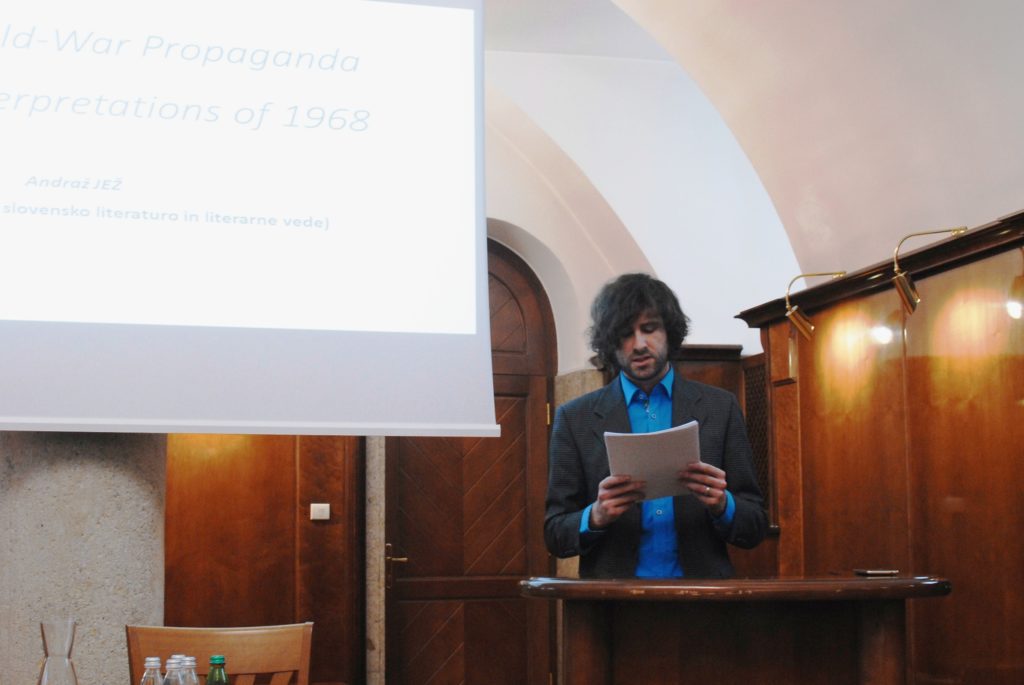
Andraž Jež 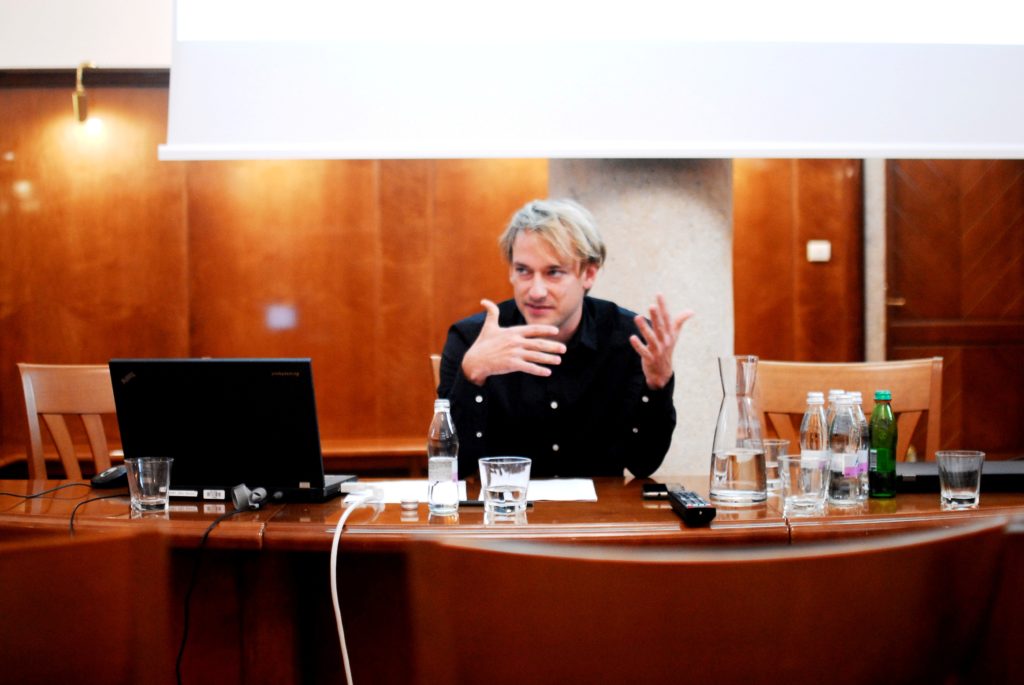
Rok Benčin 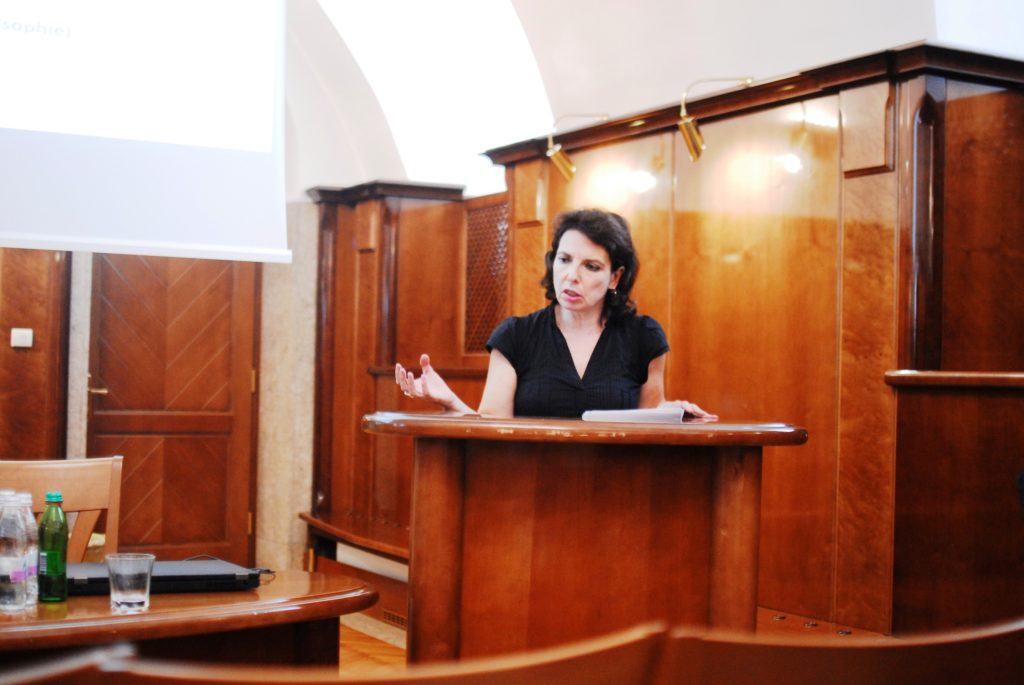
Antonia Birnbaum 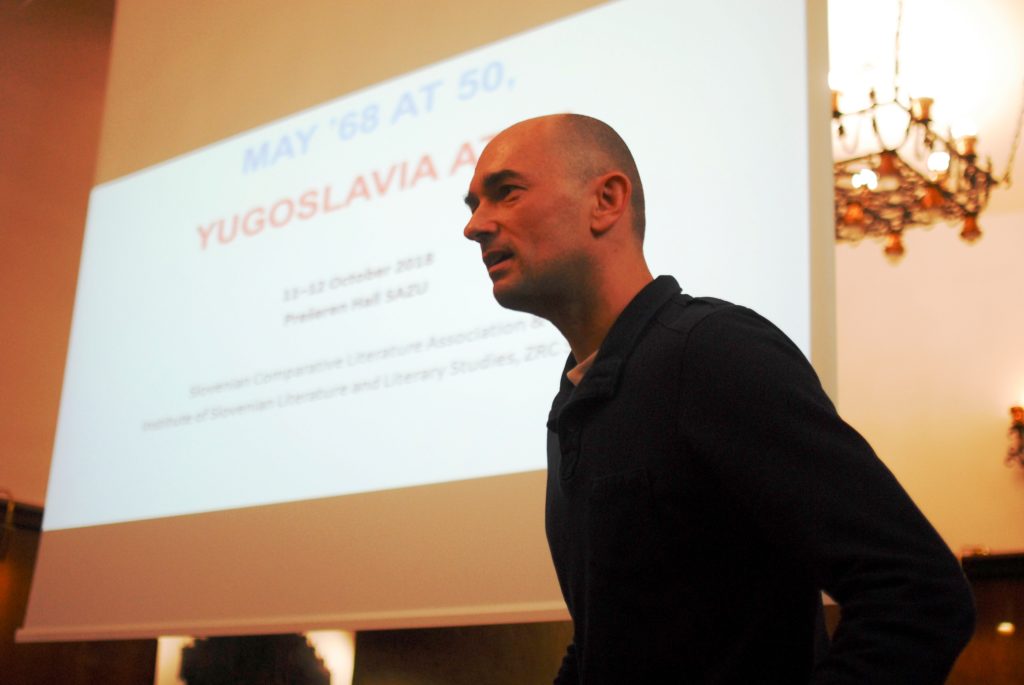
Jernej Habjan 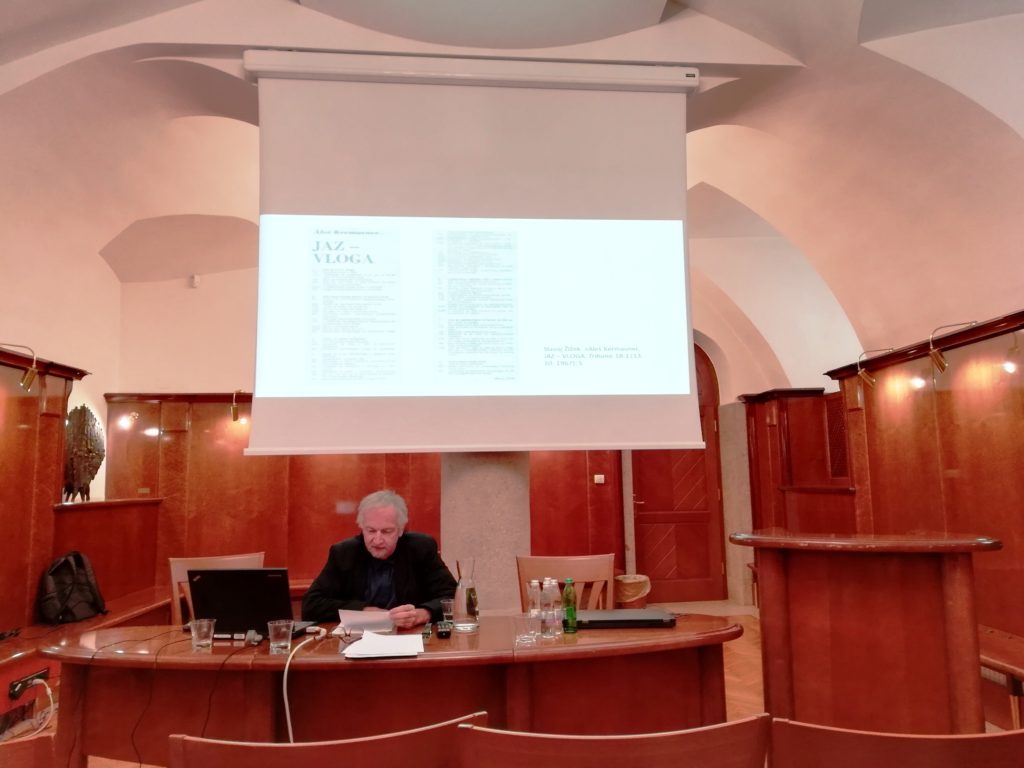
Marko Juvan 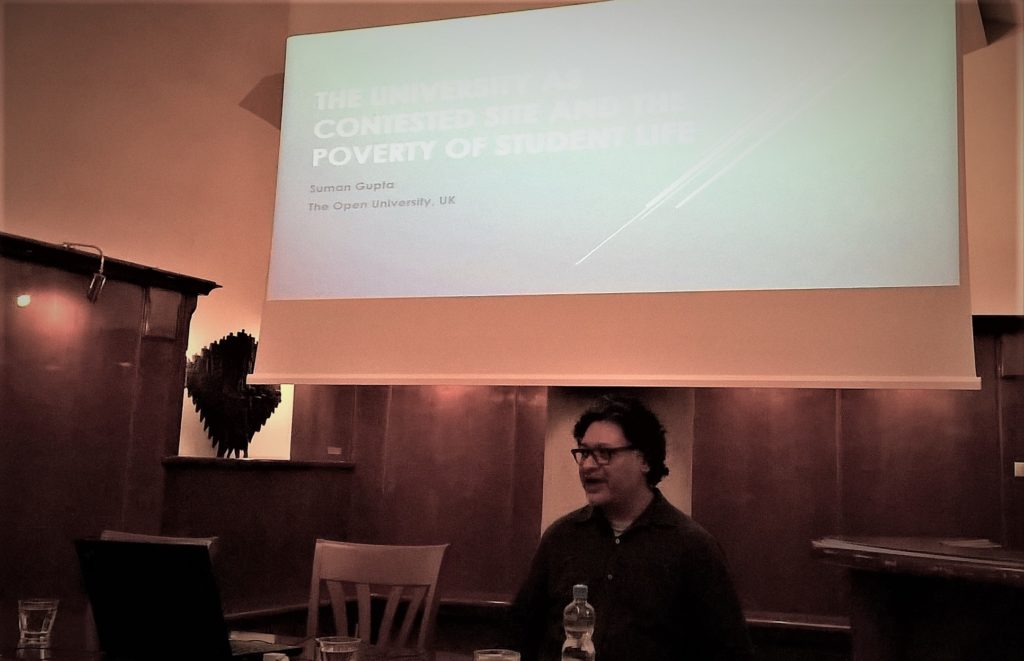
Suman Gupta 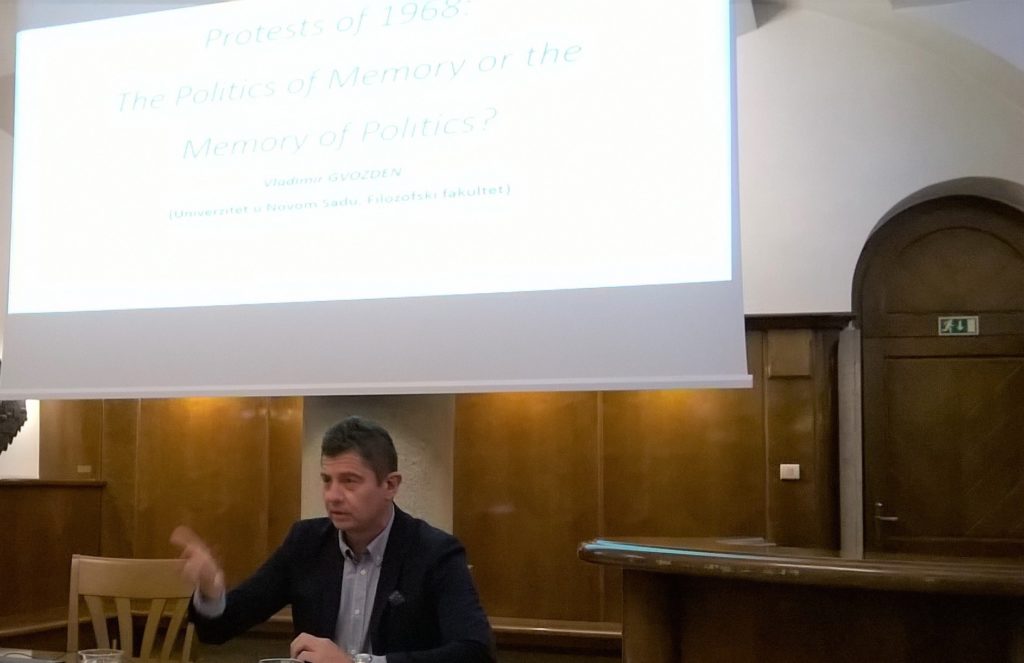
Vladimir Gvozden 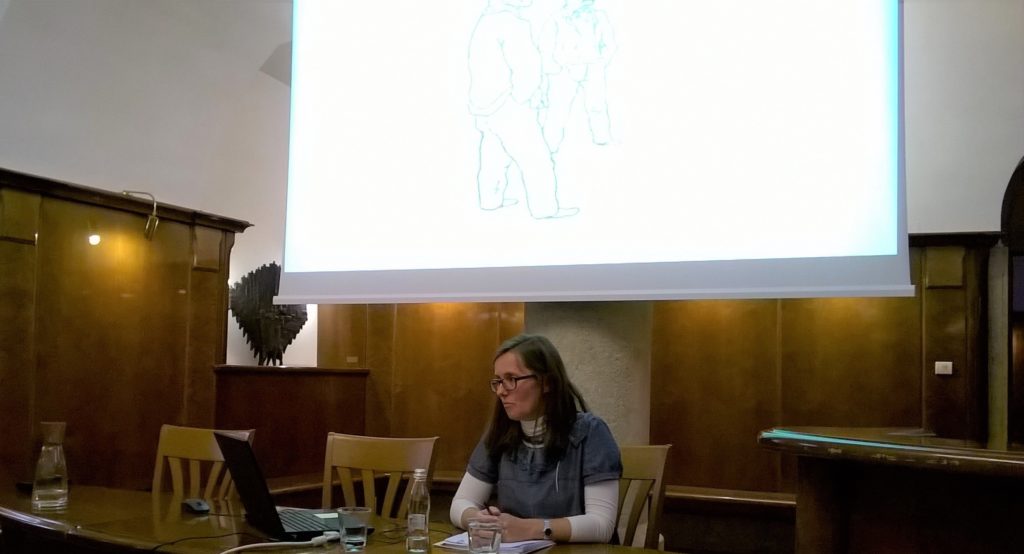
Ivana Perica 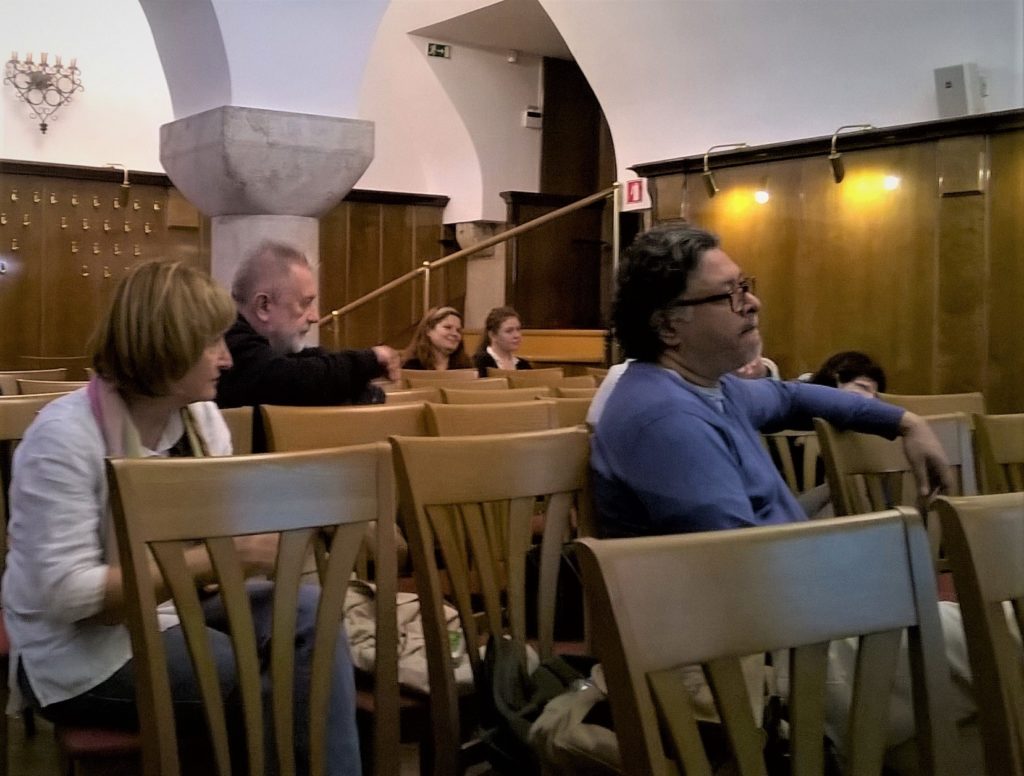
Rastko Močnik, Suman Gupta 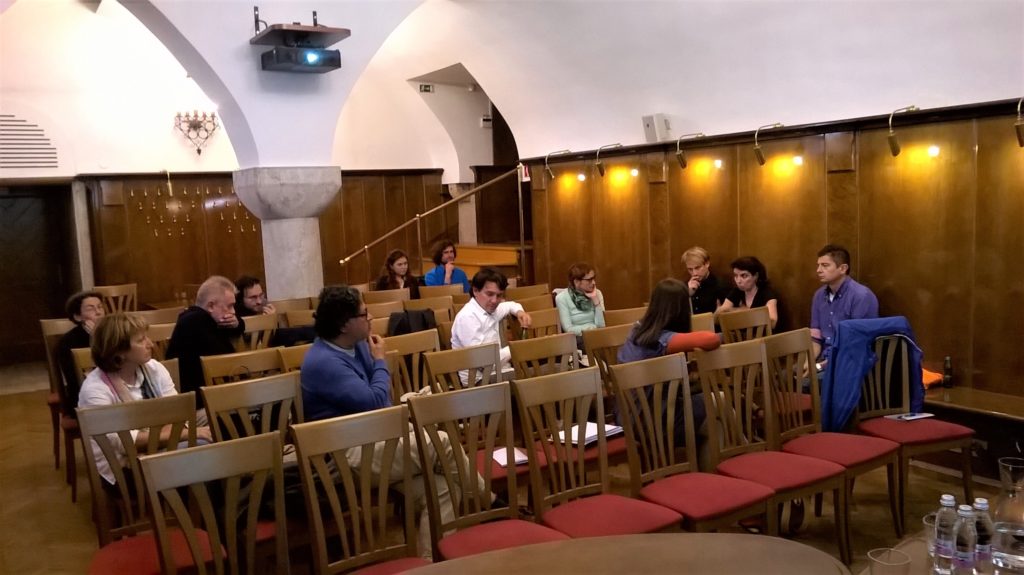
Diskusija
